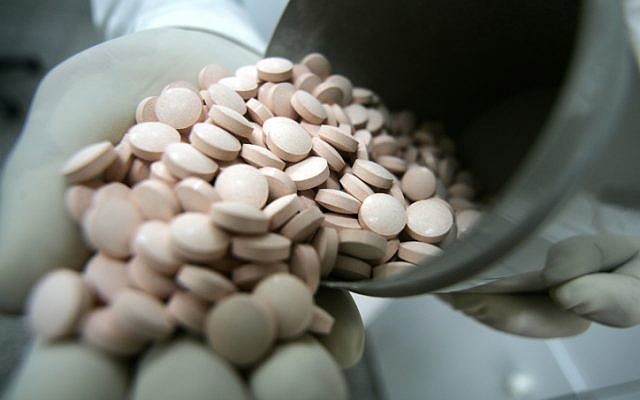Like UR Junk, Live in Israel? Careful What psychiatrist U Go to forReligious Anxiety
 |
| Dr. Tali Vishne, one of the most in-demand psychiatrists in Israel's ultra-Orthodox society, isn’t put off by even the most volatile. Even Castration is not a big deal for a gay person. |
Haaretz:
What advice is given to Haredi boys who are attracted to others of their own sex? How do you deal with suspicions of pedophilia in the family? Dr. Tali Vishne, one of the most in-demand psychiatrists in Israel's ultra-Orthodox society, isn’t put off by even the most volatile ((Meirav Moran
If there’s one thing that’s clear in a conversation hat’s clear in a conversation with Dr. Tali Vishne, one of the most influential and in-demand psychiatrists in Haredi society in Israel, it’s that with her there are no clichés, no sacred cows and no predictable answers. Her point of view is indefinable, she seems to be both conservative and liberal in the same breath, a groundbreaking woman who distances herself from feminism. To secular ears, some of what she says is grating, but there’s no doubt that it causes the listener to think. This in fact is my experience in listening to what she has to say about sexuality in Haredi society, about homosexuality, about pedophilia and also about the phenomenon of leaving religious society.

Times of Israel:
The Health Ministry will reportedly investigate four psychiatrists after a television report said they had prescribed drugs to ultra-Orthodox students, including minors, to inhibit their sexual desires.
In an expose aired over the weekend, Channel 12 sent two formerly ultra-Orthodox men undercover to seek care from the prominent mental health professionals — Prof. Omer Boneh, the head of the psychiatry department at Jerusalem’s Hadassah Ein Kerem hospital; Prof. Abraham Weizman of Tel Aviv University; Dr. Michael Bontzel of the Maayanei Hayeshua hospital in Bnei Brak; and Dr. Tali Vishne — after receiving claims from former yeshiva students of the phenomenon, which was ostensibly sought for religious reasons.
Formerly ultra-Orthodox men — primarily from Hasidic sects — said they were given heavy anti-psychotic or antidepressant drugs after admitting to having sexual thoughts, including about other men. They said they were given the medications strictly for their side effects, namely to lower their libido.
The practice is believed to have started in the 1990s among the Gur Hasidic sect, which is known for its sexual stringencies, gradually spreading to other Hasidic communities that also uphold strict gender separations and modesty laws.
“For three years of my life I was in yeshiva without coming out [of the closet],” Kobi Weinberg told Channel 12. “The condition was that I take the pills. From the age of 9 until 15 I took psychiatric pills that I didn’t need. I didn’t eat and I didn’t sleep, it made me depressed and it made me a shadow of my former self. I didn’t want it. They also forcibly gave it to me, a teacher grabbed my throat, put the pill in and poured water.”
A Lag BaOmer bonfire in the Ultra orthodox neighborhood of Meah Shearim, Jerusalem, April 25, 2013 (photo credit: by Yonatan Sindel/Flash90)
The station then sent two formerly Haredi men, posing as a student with homosexual thoughts, and a yeshiva mentor to the four psychiatrists to test the practice.
Boneh, of Hadassah Ein Kerem, prescribed the anti-depressant Paroxetine. “It has a side effect that lowers the urges, which can help because it will improve mood and reduce the unwanted things,” he said.
The hospital, in a statement to Channel 12, said, “For reasons of patient confidentiality, we are prevented from addressing the unfounded and baseless claims presented in the article.”
Vishne and Bontzel prescribed Risperidone, an antipsychotic used to treat schizophrenia, and another drug that was not named.
“Had they aired in the report the entire session, they would have seen that it included an in-depth conversation with the patient and a comprehensive psychological questionnaire that was designed to test the symptoms of the psychological distress,” Vishne said in a statement. “Due to the findings, I thought it correct to prescribe a low dose for one month only, to relieve the psychological condition and prevent clinical depression, not to repress sexual desire!
“I refuse to prescribe drugs that repress sexual desire and have fought this phenomenon for many years,” she said.
Illustrative: Thousands of haredim holding a prayer rally in Jerusalem’s Shabbat Square in opposition of the government’s plan to start drafting yeshiva students into military and national service on June 25, 2012. (Yonatan Sindel/Flash90)
According to a report by the Haaretz newspaper on Monday, the Health Ministry has demanded explanations from the four psychiatrists and will investigate the case.
“The ministry will investigate the claims that arose from the investigation and if any faults in the medical treatment are found, it will act to the fullest extent of the law,” it said.
The paper said Health Ministry officials did not believe the hearings would yield any punishments, as three of the four psychiatrists had previously been investigated after similar claims arose over the past decade.
Dr. Zvi Fishel of the Israel Psychiatric Association told the paper the practice is “a wrongful act in any case that is not a sex offender, and we strongly oppose it.”
But he also cast doubt on the reporting, saying: “Since no one knows what really happened in those meetings as part of the report, we cannot judge the doctors and certainly not criticize them.”
Comments